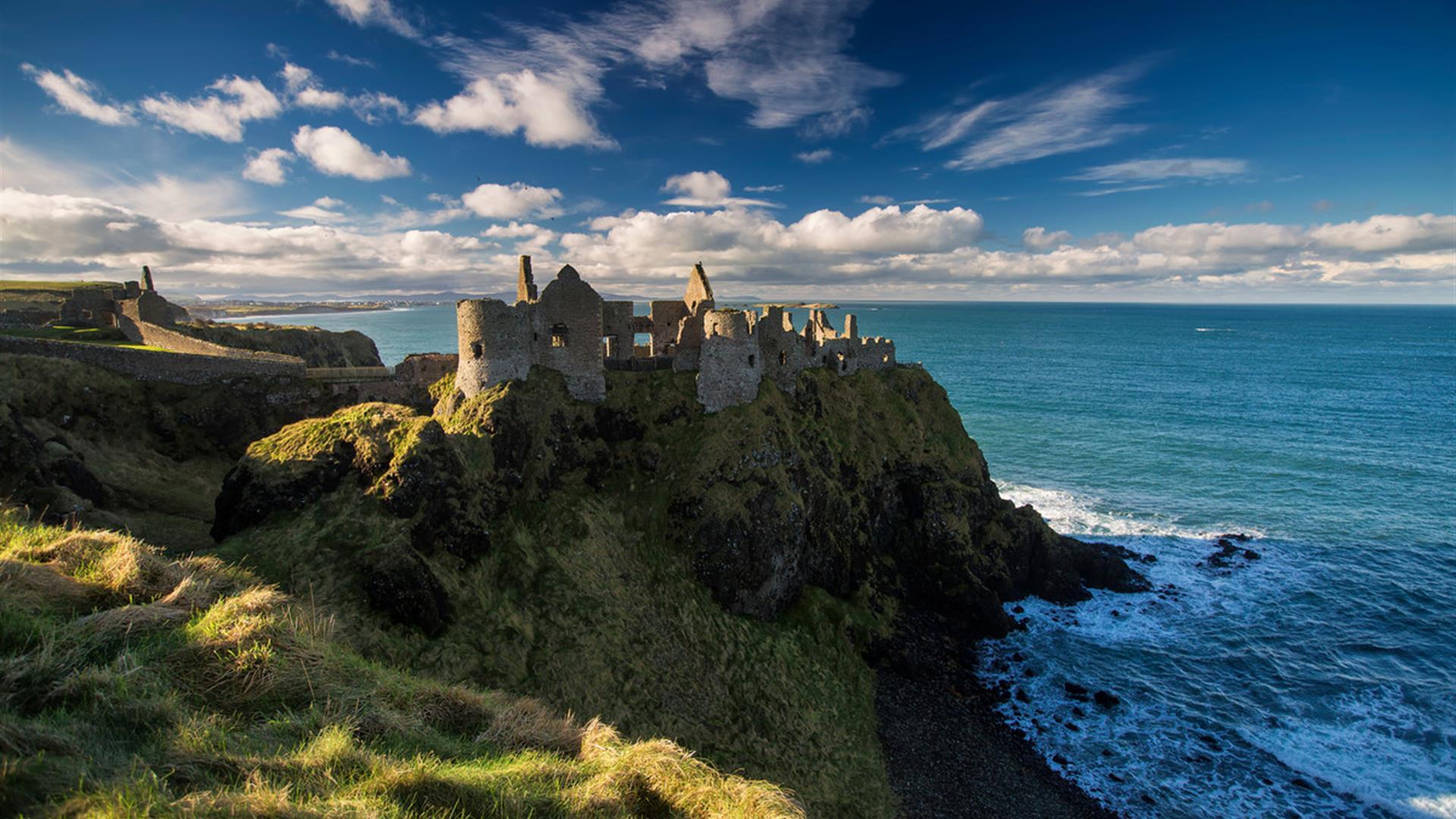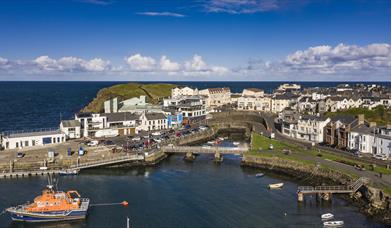Book Tickets Online
About
Dunluce is one of the most picturesque and romantic of Irish Castles. With evidence of settlement from the first millennium, the present castle ruins date mainly from the 16th and 17th centuries. It was inhabited by both the feuding McQuillan and MacDonnell clans. Historical and archaeological exhibits are on display for public viewing.
In times of extreme weather conditions the site may be closed to ensure health and safety of staff and visitors. If in doubt please contact the castle on the number provided to check if normal opening hours can be facilitated before travelling to the site.
Winter opening hours (18th November 2024 – 16th February 2025): Daily 9am – 4pm. Summer opening hours (17th February 2025 – 16th November 2025): Daily 9.30am to 5pm.
Note: Last admission 30 minutes before closing. Admission charges apply.
Nearby Magheracross Viewing Point and picnic area is an excellent spot to stop and take in the stunning, coastal scenery, often missed when travelling by car along the coast road.
The iconic ruin of Dunluce Castle bears witness to a long and tumultuous history. First built on the dramatic coastal cliffs of north County Antrim by the MacQuillan family around 1500, the earliest written record of the castle was in 1513.
It was seized by the ambitious MacDonnell clan in the 1550s, who set about stamping their mark on the castle under the leadership of the famous warrior chieftain Sorely Boy MacDonnell during an era of violence, intrigue and rebellion. In the 17th century Dunluce was the seat of the earls of Antrim and saw the establishment of a small town in 1608. Visitors can explore the findings of archaeological digs within the cobbled streets and stone merchants’ houses of the long-abandoned Dunluce Town.
The dramatic history of Dunluce is matched by tales of a banshee and how the castle kitchens fell into the sea one stormy night in 1639.
Facilities
Establishment Features
- Accept coach parties
- Toilets
Parking & Transport
- On site parking
Payment Methods
- All major credit/debit cards accepted
Travel & Trade
- Family Discount
















